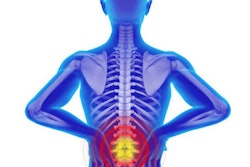
Doctors are struggling to balance their responsibilities as gatekeepers of imaging when anxious patients request studies, according to a group in Australia.
A group led by Jillian Clarke, PhD, of the University of Sydney, interviewed 10 general practitioners (GPs), with findings suggesting that clear guidelines are needed on the appropriate use of diagnostic imaging and its limitations to help patients understand its proper use.
"Requests are fulfilled from anxious or health-obsessed patients, with GPs worrying about litigation if they refuse. However, GPs decline requests from patients with entitlement attitudes or during first visits," the group wrote, in an article published August 16 in Health Expectations.
With the increased availability of health information online, patients can now more easily access and learn from information about medical conditions and can consider themselves well-informed health consumers, the researchers noted.
"This has contributed to the rise of patient consumerism," they wrote.
However, doctors increasingly encounter patients who request imaging studies, and rather than relying on their expert guidance on whether the studies are warranted, they challenge the doctor's role as gatekeeper, they added.
In this study, the researchers aimed to explore the doctor-patient relationship and factors that influence granting patient requests. Specifically, the researchers aimed to answer two questions:
- What factors facilitated physicians to fulfill or decline requests?
- What patient characteristics enabled (or not) fulfillment of the request?
In total, 10 GPs between the ages of 35 and 73 were interviewed until no new themes were generated, reaching saturation, the authors wrote. The GPs had between 5 and 40 years of experience in practice and identified as either male (4) or female (6).
Six themes arose, according to the findings, as follows:
Expectations: There is an assumption by patients that in requesting diagnostic imaging they are being proactive in addressing their health concerns. Moreover, this assumption is associated with prior radiological experience.
"Therapeutic scans": A phenomenon in which GPs feel compelled to oblige patient requests as a form of reassurance, even if they do not agree with the nature of the request. This behavior is often driven by the desire to satisfy patients and provide them with comfort and closure with their health concerns.
"Impressive Labels": This phrase characterizes concerns regarding patient accessibility to prior radiological scans or reports. When patients have access to radiological imaging results, there is a potential for them to misinterpret their current symptoms by comparing them to their previous experiences or those of others they know, such as family members or friends.
Defensive medicine: If a patient presents with symptoms indicative of a fracture or any serious medical condition, the GP faces a difficult decision. If the GP decides not to order the requested test and the condition is later diagnosed, there is a possibility that the patient or their family may pursue legal actions.
New patient: GPs had very strong views about individuals demanding studies on their first visits and were more obliging to those in long-term doctor-patient relationships.
Entitled: Most GPs were concerned Medicare subsidized studies allowed greater accessibility to imaging. Such access may lead some patients to perceive it as their "right" to receive such diagnostic tests whenever they ask, regardless of its necessity.
Ultimately, education and training for GPs could help them manage patient expectations and provide appropriate care, the researchers wrote.
"Overall, this study highlights the complex dynamics involved in patient-GP interactions regarding imaging requests and suggests that developing evidence-based strategies, perhaps through the professional bodies, might help manage the complexities surrounding such requests," the group concluded.
The full article is available here.




















